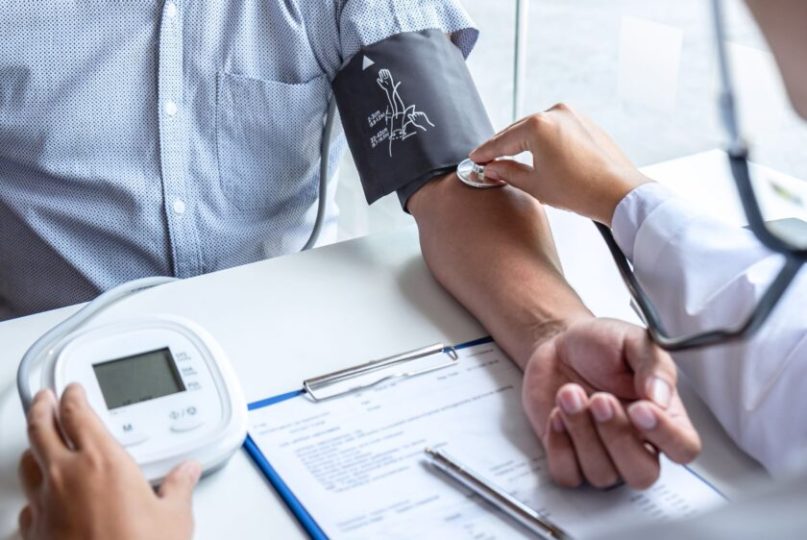In an era where healthcare advancements are constantly evolving, one of the most powerful tools in maintaining a healthy life is prevention. Preventive healthcare focuses on the early detection and prevention of diseases, and it plays a pivotal role in improving overall public health. Regular checkups, screenings, vaccinations, and lifestyle modifications can help you avoid serious illnesses and ensure a longer, healthier life.
What is Preventive Healthcare?
Preventive healthcare refers to actions taken to prevent diseases, rather than treating them after they occur. This includes a wide range of activities such as routine physical exams, vaccinations, cancer screenings, heart disease risk assessments, and lifestyle adjustments that contribute to maintaining optimal health.
Regular checkups are essential because they allow healthcare providers to detect potential health issues before they become severe. Preventive care helps you manage risk factors, track chronic conditions, and receive early treatments that can prevent long-term complications. This approach not only improves health outcomes but can also reduce healthcare costs by preventing expensive treatments for advanced stages of diseases.
Key Components of Preventive Healthcare
-
Routine Health Screenings: Health screenings are an essential part of preventive care. Common screenings include blood pressure checks, cholesterol tests, and blood glucose tests to monitor conditions like hypertension, high cholesterol, and diabetes. The American Heart Association recommends regular screenings to assess cardiovascular health, as early detection of risk factors like high blood pressure can help prevent heart disease and stroke.
-
Vaccinations: Vaccines play a critical role in preventing infectious diseases. From childhood immunizations to annual flu shots, vaccines can save lives by preventing outbreaks and reducing the spread of diseases. The Centers for Disease Control and Prevention (CDC) provides comprehensive guidelines on recommended vaccinations for individuals of all ages.
-
Cancer Screenings: Early detection of cancer through screenings like mammograms, colonoscopies, and skin checks can significantly improve survival rates. The American Cancer Society provides guidelines on the types of screenings individuals should undergo based on age, gender, and family history.
-
Mental Health Checkups: Mental health is an integral part of preventive care. Regular assessments and discussions with healthcare providers can help identify mental health conditions such as anxiety or depression early on. Resources like National Alliance on Mental Illness (NAMI) offer support and guidance for mental health screenings and treatment options.
-
Healthy Lifestyle Choices: Preventive healthcare also involves adopting healthy lifestyle practices such as regular exercise, balanced nutrition, and sufficient sleep. Engaging in physical activities and following a healthy diet can lower the risk of obesity, diabetes, and cardiovascular diseases. For more tips on healthy living, check out the Mayo Clinic’s Healthy Lifestyle guide.
Why Preventive Healthcare is Important
-
Detects Diseases Early: Many diseases develop slowly and may not present obvious symptoms in the early stages. Regular screenings can detect issues like high cholesterol, diabetes, and certain cancers before they become life-threatening. The earlier diseases are detected, the easier they are to treat and the higher the chances of a full recovery.
-
Reduces Healthcare Costs: Preventive care is a cost-effective approach to health. By identifying and managing health conditions early on, individuals can avoid expensive emergency treatments and hospitalizations. For example, controlling blood sugar levels in individuals with diabetes can prevent costly complications like kidney failure, which requires dialysis.
-
Promotes Long-Term Health: Regular preventive care helps individuals stay healthier over the long term. By staying on top of health screenings and making necessary lifestyle changes, you can live longer and with better quality. World Health Organization (WHO) emphasizes that promoting good health practices in daily life is crucial for maintaining well-being and reducing the global burden of disease.
-
Improves Mental and Emotional Health: Preventive healthcare also involves paying attention to mental health. Emotional well-being is essential for a fulfilling life. Routine mental health checkups can help identify conditions such as depression, which, when addressed early, can prevent more severe issues. Psychology Today offers insights into the importance of mental health and how early intervention can lead to better outcomes.
-
Supports Healthy Aging: As we age, the risk of developing chronic diseases increases. Preventive healthcare can slow the progression of aging-related conditions, such as arthritis, osteoporosis, and cognitive decline. Regular screenings for bone density, eye health, and cognitive function can help catch age-related diseases early, allowing for better management and quality of life.
How to Make Preventive Healthcare a Priority
-
Schedule Regular Checkups: Make it a habit to visit your primary care physician annually for a general health checkup. Discuss any concerns or symptoms you may have, even if they seem minor.
-
Stay Up to Date with Screenings and Vaccines: Follow recommended guidelines for screenings and vaccinations based on your age and risk factors. Keeping track of your health appointments and staying proactive is essential for prevention.
-
Maintain a Healthy Lifestyle: Embrace a balanced diet, engage in physical activity, and prioritize sleep. The healthier your lifestyle, the better your chances of avoiding chronic diseases.
-
Be Proactive About Mental Health: Don’t hesitate to talk to your doctor or a mental health professional if you’re feeling anxious, depressed, or overwhelmed. Mental health care is just as important as physical health care.
Conclusion
Preventive healthcare is an essential component of living a long, healthy life. It empowers individuals to take control of their health, detect potential health issues early, and reduce the likelihood of developing serious diseases. By prioritizing regular checkups, screenings, vaccinations, and maintaining a healthy lifestyle, you can significantly improve your overall health and well-being. Visit CDC’s Preventive Care Page for more information on the importance of prevention in healthcare.
Embrace preventive healthcare today for a healthier tomorrow!
















